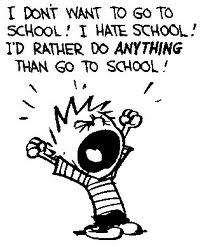I had thought of myself as an “artsy type” from quite an early age. I loved music, drawing, painting, reading, and so on, and wasn’t fond of things like sports and mathematics.
I had a friend in junior high school who to me epitomized what it meant to be “artsy.” Even her name, Damaris Low, sounded artsy to me. Both of her parents were artists, and Dandy, as she was called, was very different from the other kids at school. Back then, in the fifties, most of the girls had medium to short hair, usually permed. Dandy had long, silky blond hair that she wore in a tightly pulled back pony tail that hung below her waist. She wore circular skirts, ballet slippers and tights. Tights! Nobody wore tights back then, especially under a skirt! She was such an original, and since I felt pretty different myself, it seemed to me that we had a lot in common.
One day after school I went to Dandy’s house for a sleepover. Her parents had gone out somewhere, so she was there by herself. Her mother had left her a casserole in a pyrex dish with instructions to heat it up in the oven so we could have dinner. Dandy put the pan in the oven, and when it was ready, she reached in to pull it out as she was rattling on about one of her favorite artists. But her hands slipped, and it fell to floor. The pyrex dish broke into pieces. She called her mother in tears. I don’t remember what the outcome was, but I do remember that I thought, “How could she be so careless and distracted?” And as I think of this today, I realized that I reacted exactly as my mother — a practical, pragmatic non-artsy woman — would have.
Then there was the time when Dandy challenged me to try to interpret a painting. She knew a lot about art and I didn’t know much, although I thought I had an “eye.” I looked at the painting, which consisted mostly of what looked like a bunch of matchsticks in cross-like shapes. I had no idea what it meant, so I sort of hemmed and hawed, and she finally said in exasperation, “It’s a CEMETERY, silly!” At that moment I didn’t feel artsy. I felt dumb.
As the years went by, I started to realize that, in spite of being a musician and having a great affinity for the arts, I also had a rather stubborn practical streak. I was sure that I was more like my father, who was definitely an artsy type, but I had to admit that I also seemed to have inherited my mother’s practicality and pragmatism. Carrying what seemed to be these opposites around inside of me actually drove me nuts for years. It always seemed to me that my practical side interfered with my artistic expression, and that my artistic side made some people view me as a “loose cannon.” 
But much later in life I discovered that being a musician actually involved a lot of grunt work that demanded practicality and attention to detail. It wasn’t just about being creative all the time, with my head happily in the clouds. Composing music, for instance, involved getting the stuff down on paper, or later on into the software notation program, where there were endless details that had to be fiddled with. Then there was the business of promoting oneself, which rarely involved anything remotely creative. I discovered that to be a musician, unless you had a secretary, you had to be down to earth and practical as well as creative and intuitive.
I remembered when I was a kid and used to help my mother with work she’d bring home from her office. One day I was busily filing cards into a little metal box, and I said to her, “You know what, Ma? I want to be a secretary when I grow up!” Only a few years later, I forgot about that and decided I wanted to be a jazz pianist.
So now, instead of tearing my hair out because I’m not a “pure” artist, I’m grateful, because I honestly think that both my creativity and my practicality have served me well.


